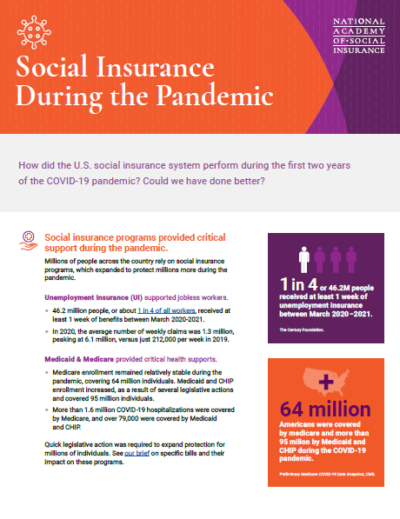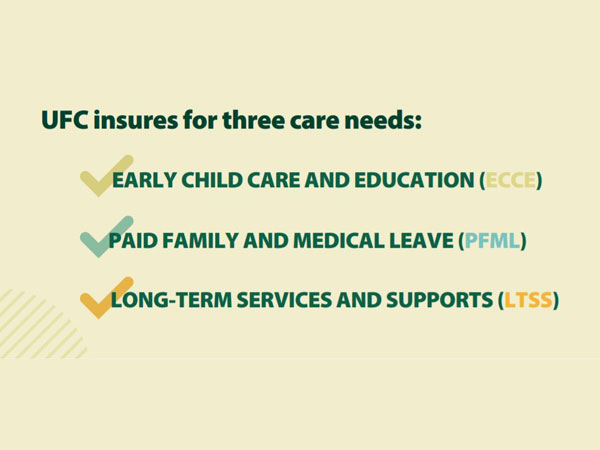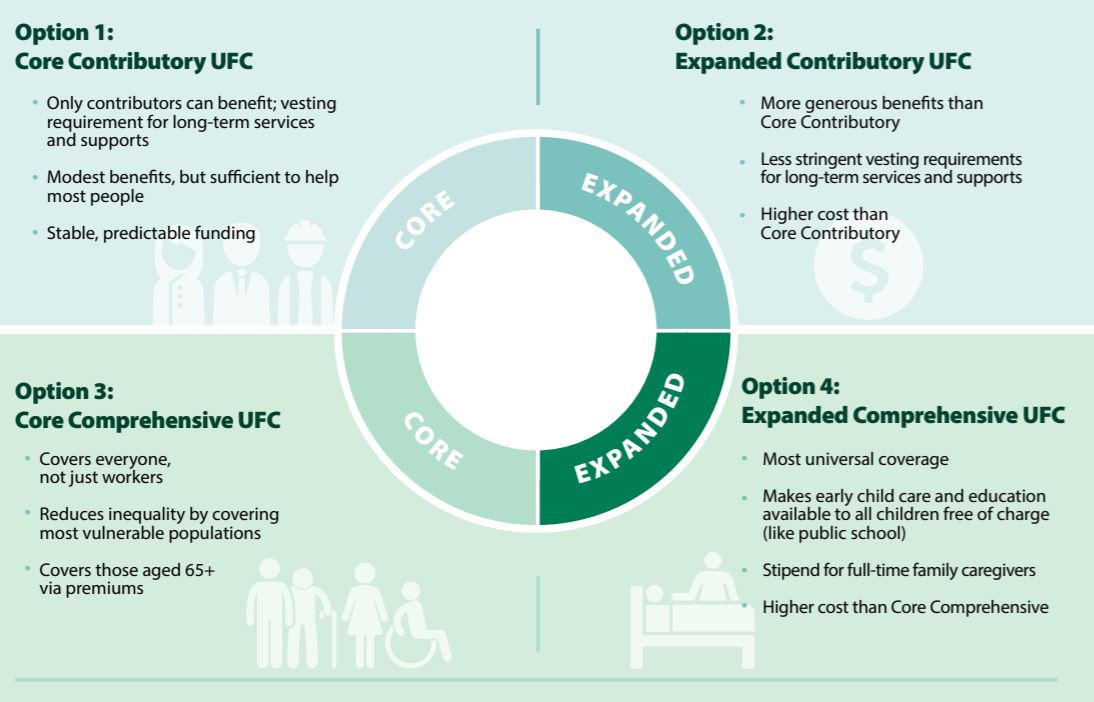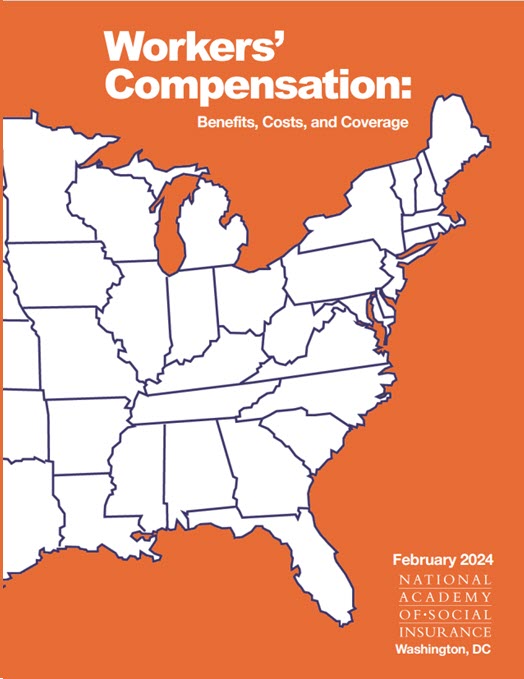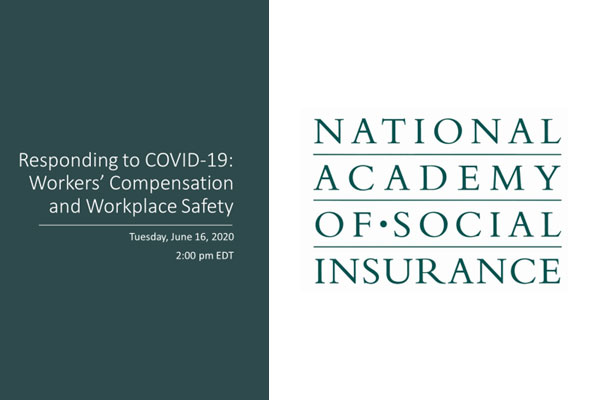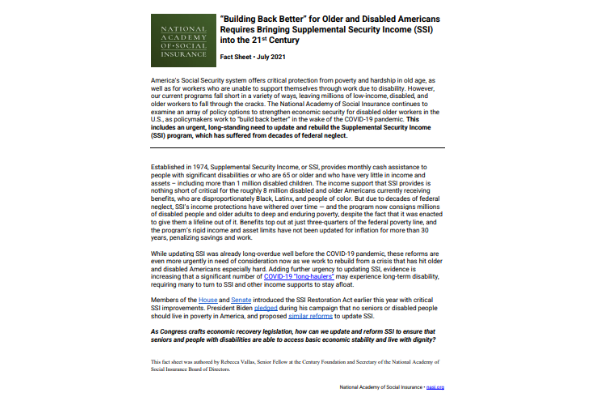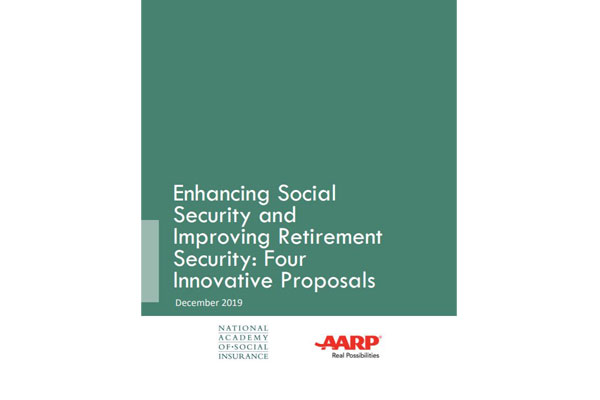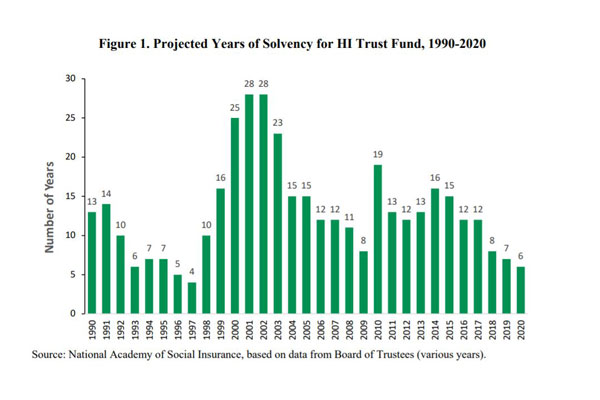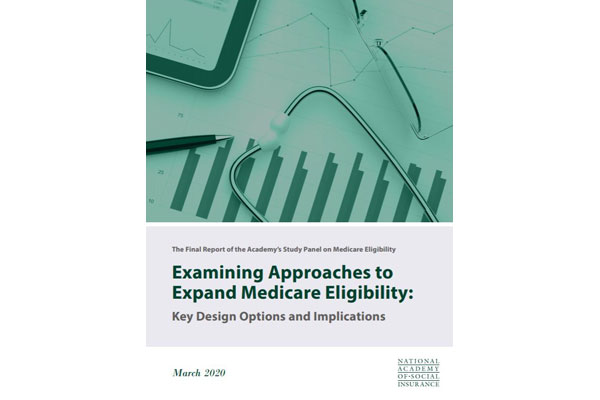Policymakers & Advocates
The National Academy of Social Insurance serves as a resource for social insurance-based solutions to challenges facing the nation, helping workers and their families pool risks to avoid loss of income due to retirement, death, disability, or unemployment, and to ensure access to health care.
Economic Security
The toolkit contains fact sheets, infographics, and commentaries that reflect a broad range of expertise and provide data points and messaging on how enhancements to social insurance programs can strengthen Pathways to Economic Security for all, with a focus on alleviating longstanding inequities.
This report gathers evidence on the extent of economic insecurity in the U.S. and provides an array of policy options could help ensure an adequate income for all.
Caregiving and LTSS Policy
Strengthening California’s Care Infrastructure: Professor Fernando Torres-Gil (UCLA) on social insurance based long-term services and supports.
Universal Family Care helps families afford to provide or receive care over the course of their lives.
Universal Family Care can be contributory or comprehensive by design.
Workers’ Compensation
February, 2024
The 26th annual workers’ compensation report produced by the Academy provides the only comprehensive data on workers’ compensation benefits, coverage, and employer costs for the nation, the states, the District of Columbia, and federal programs.
November, 2020
States’ responses to the COVID-19 pandemic with respect to workers’ compensation policy will likely prove an important factor in providing critical support to workers while protecting employers from liability.
November, 2020
Workers’ compensation insures millions of workers and their families against the risks associated with lost wages and medical costs in the event of injury on the job, workrelated illness and, in extreme cases, the death of a worker. It is the only social insurance system run almost entirely by states, with no federal guidelines.
June, 2020
Academy Members and partners participated in a virtual roundtable discussion on recent legislative and executive responses by states across the country concerning workers’ compensation and workplace safety.
Social Security
July 2021
This fact sheet describes the urgency of updating Supplemental Security Income (SSI) after decades of federal neglect, especially as policymakers work to “build back better” in the wake of the COVID-19 pandemic. It includes policy options for ensuring that seniors and people with disabilities are able to access basic economic stability and live with dignity.
August 2020
The primer is a PowerPoint presentation of approximately 40 slides that provides factual background about Social Security, its benefits and finances, and some policy options to improve the program. The Academy’s income security staff ensures that the data in the presentation are up-to-date.
December 2019
The National Academy of Social Insurance, in collaboration with AARP, conducted a Social Security Policy Innovations Challenge in 2019. The purpose of this Challenge is to surface and disseminate creative and practical policy proposals that might improve retirement security…
Medicare & Health Policy
April, 2020
Medicare provides health insurance coverage to about 61 million Americans – 52.6 million ages 65 and older and 8.7 million persons with disabilities – and is one of the nation’s largest sources of health coverage. Close to 20 percent of U.S. health expenditures flow through Medicare, which provides coverage for about one of every six people residing in the country.
July, 2020
The COVID-19 pandemic has shocked the U.S. health care system. With the highest unemployment rates since the Great Depression, millions of Americans have lost employer-sponsored health insurance. Since the beginning of the pandemic, visits to primary care physicians and outpatient specialists have declined, and many hospitals have postponed or cancelled elective procedures.
March, 2020
Improving access to affordable, high-quality health coverage and care and containing health care spending remain formidable policy challenges for the United States. Some policymakers and analysts view Medicare as a useful platform for expanding coverage because it has broad popularity, serves as a cost-effective source of health insurance coverage, and has potentially positive side effects across other parts of the health care system.

